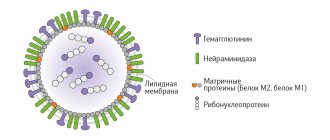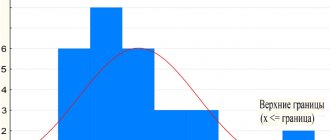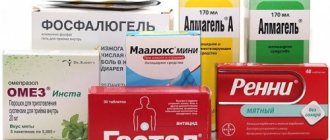For many of us, childhood memories remain the most vivid impressions in life. One of these memories I have is hiking in the forest during my summer holidays. Finding mushrooms and berries was a real adventure for me and my friends. Taught by our elders, we put on rubber boots, trousers, jackets, scarves and hoods, carefully covering everything except our faces and hands. It cannot be said that we liked this kind of preparation, but this issue was not subject to discussion. And as we got a little older, we ourselves began to understand that preventing tick bites is a really important thing.
Tick bites themselves are not dangerous to humans. The danger arises if the tick is infected. They are carriers of tick-borne encephalitis, Lyme disease, typhus and others.
Tick-borne encephalitis is caused by a virus. This disease affects the central nervous system. Usually the disease occurs with pronounced symptoms, but a chronic course is also possible. Often tick-borne encephalitis leads to death or disability of the patient.
Why is this vaccination needed?
Vaccination against tick-borne encephalitis helps protect the body from a dangerous virus.
Vaccination is also necessary to prevent the dangerous consequences of the disease that accompany a person throughout his entire life.
Important! Almost every tick is a carrier of the virus. This means that a bite from any of them can cause irreparable harm to health, and infection with encephalitis is possible even in Moscow and the Moscow region. Meanwhile, you can encounter insects not only in the forest. Ticks also live in cities. They can get on a person’s body even in the park during a walk, when traveling out of town, to the country house or on a picnic.
Why get vaccinated against tick-borne encephalitis?
There are no drugs that directly affect the tick-borne encephalitis virus. The main way to prevent serious consequences is to prevent infection. Everyone knows that in the forest you need to dress appropriately and use repellent. However, every year ticks bite an average of 30 thousand people in each endemic area.
A more modern method of prevention is vaccination. Vaccination done in advance protects by 95-97% from the risk of contracting a terrible disease. The vaccination is carried out against tick-borne encephalitis. There is no vaccine against borreliosis.
If you come into contact with a tick, the Anti-Tick insurance policy will help you out. It allows you to submit a tick for research free of charge during the insurance period. The cost of one tick test for encephalitis and borreliosis is approximately twice the cost of the policy. The insurance includes consultations with specialists and aseptic tick removal. If the test results for encephalitis and borreliosis are positive, the insurance will cover the costs of treatment and rehabilitation worth up to 1 million rubles.
Scheme
Immunization according to indications is carried out in clinics at the place of residence. You can also get vaccinated in a paid clinic. Vaccination against tick-borne encephalitis for children is carried out in educational institutions.
To develop stable immunity, the vaccine is administered twice. The first vaccination is usually given in the fall.
This allows you to prepare for the traditional spring-summer epidemic.
Repeated immunization is carried out at the beginning of winter
(about a month later). If the vaccination date is missed, it is allowed to postpone it by 3 months. This scheme ensures the development of lasting protection against a dangerous disease.
Revaccination is carried out after 9-12 months
(not earlier). The exact deadline is announced by a specialist.
Important! In emergency cases, the drug is administered earlier. The second vaccination against tick-borne encephalitis for children planning a trip to a health camp outside the city, for example, can be given as early as 2 weeks after the first.
There are other schemes. The three-dose regimen involves administering the first vaccination, administering the second dose of the drug after 2 weeks and the third - 3 months after the second.
How can vaccination help with a tick bite?
After a tick bite, the virus enters the human body. In response to this, antibodies are formed - protective proteins. They are the ones who fight the virus. But their production takes time. While they are being produced, the infection manages to damage many structures before it is rebuffed.
The body of a vaccinated person is pre-armed with antibodies. The virus receives a response from the first minute it enters the bloodstream. As a result, the disease does not develop because the virus is destroyed by antibodies.
Figuratively speaking, while the unvaccinated one is building a factory for the production of guns, the grafted one is already releasing all the ammunition at the enemy, destroying him even as he approaches the borders.
Features of the event
The encephalitis vaccine is given subcutaneously under the shoulder blade or in the deltoid muscle.
Important! The site of administration of the drug is determined by the manufacturer and depends on the composition. Recently, preference has been given to intramuscular formulations.
Before vaccination, you should definitely consult your doctor. He will examine the patient and determine whether he is healthy and whether he should be injected with the drug now or whether it is better to postpone the procedure. ARVI and other pathological conditions must be excluded. If necessary, the patient undergoes examination. As a rule, a general blood test is given. It allows you to exclude the presence of inflammatory and other negative processes in the body.
Risk of occurrence
Tick-borne encephalitis occurs not only among those who like to pick mushrooms in the forest and spend time at their summer cottage.
Many parasites hide in city parks, lawns and park areas. A child can catch a tick even while walking in the yard. The risk of infection transmission depends on the duration of the bloodsucker's suction. Males feed on blood for 20-30 minutes, and females remain at the site of the bite for 5-7 days, after which they leave the host’s body and lay eggs. It is important to consider that in many regions every second tick is infectious. Other methods of infection:
- Crushing the parasite on the skin. Even with a small abrasion, the virus can enter the bloodstream and trigger the development of encephalitis.
- Improper removal of ticks from the skin surface. In this case, the parasite is more likely to infect humans.
- Consumption of products obtained from the milk of an infected animal. Only careful heat treatment can destroy the virus in milk.
Children, elderly people and patients suffering from impaired immunity are more susceptible to infection. Ticks are most active from April to the end of September.
Reaction and possible complications
All modern drugs (subject to proper storage and high quality) are well tolerated.
Possible reactions to vaccines are divided
on the:
- Local: slight redness of the skin and local increase in temperature
- General: slight increase in body temperature, weakness, slight malaise, headache, aching joints
All reactions resemble the onset of a cold. They are harmless and do not require medical advice.
As a rule, such reactions are caused by an individual “response” of the body or by the administration of a drug that has expired or violated storage conditions.
Contraindications:
- Allergy to the vaccine or its components;
- taking other medications (combined use may cause side effects);
- serious chronic diseases: heart attack, stroke, diabetes, oncology, epilepsy, tuberculosis, rheumatism, etc.;
- acute diseases (you can get vaccinated a month after complete recovery);
- pregnancy and breastfeeding.
At the medical center, you can not only get the actual vaccination, but also undergo all the necessary tests, receive qualified advice and recommendations from doctors. We use the Encevir vaccine. You can get vaccinated daily from 8.00 to 20.00. A doctor's examination before vaccination is included in the price.
Types of vaccines
Vaccination against tick-borne encephalitis is given using a number of drugs produced in Russia, Austria and Germany. All products are required to undergo numerous inspections and certification. For injections, formulations are used that contain a live, but many times weakened virus. It cannot provoke the development of the disease, but allows the body to develop a strong immunity to it.
The following types of drugs are popular:
- EnceVir.
This product is produced in Russia and is well tolerated by adults. It is not recommended for children, as the drug causes a number of side effects. - EnceVir Neo.
This product is also produced in Russia and is safer for children. It is administered even to children under 3 years of age. There were no significant side effects recorded - Encepur.
Produced in Germany. Children can be vaccinated against tick-borne encephalitis as early as one year of age. The vaccine is well tolerated and very rarely causes negative consequences. - Mite-E-Vac.
This drug is manufactured in Russia. It can be administered to babies as early as one year of age. The composition is well tolerated and does not cause significant side effects. - FSME-Immun.
This drug is produced in Austria in two forms: for children from 12 months and for adults. It is recommended (in exceptional cases, with a high risk of infection) even for infants under one year old. Important! The doctor and parents should closely monitor the condition of the baby after administration of the drug.
All formulations are as effective as possible. Even if infected, the disease will be mild and will not cause complications.
Important! Foreign drugs are more expensive, but also more effective and safe.
Office photo
Useful articles
Interesting facts about medicine History of vaccination Vaccination is one of the greatest achievements of medicine, allowing to save 2 to 3 million lives annually. Preview picture in attachment Healthy lifestyle Medical examination: typical misconceptions About the importance of the correct approach to interpreting the results of a medical examination Healthy lifestyle Sleep - strong and healthy Simple rules that will help make your sleep complete.
Show more articles
Make an appointment
- More about the center
- Licenses and documents
- Our vacancies
- Contacts
- Ask a Question
- Leave feedback
- Territorial program
© 2002-2022 LLC 'Medilux-TM' - Network of medical centers | Site map All information, including prices, is provided for informational purposes and is not a public offer (Article 435 of the Civil Code of the Russian Federation, Article 437 of the Civil Code of the Russian Federation)
INN: 7725100534 OGRN: 1037700249872
Medilux-TM LLC uses cookies (files with data about past visits to the site) to personalize services and provide user convenience. You can prevent the storage of cookies in your browser settings. MedSwiss takes the protection of personal data seriously - read the terms and conditions for processing it.
Accept user agreement
Advantages of vaccination at MEDSI
- Use of high-quality and effective drugs.
All formulations are certified, properly stored and supplied only by trusted manufacturers - Vaccination safety.
Vaccination against encephalitis is given only after examination by a therapist or pediatrician. If necessary, the patient can be consulted by allergists-immunologists who see both adults and children. For patients with concomitant pathology, additional examinations, laboratory and functional diagnostics are possible - Experience of specialists.
Our professionals know how to administer medications correctly - Opportunities for appointments at any
time convenient for the patient - Vaccination of adults and children from one year onwards.
Vaccination against tick-borne encephalitis can be given according to indications or at the personal request of the patient - Mandatory health monitoring
before administering the drug. This reduces all risks of hazardous health consequences.
If you want to protect yourself from a dangerous disease, call us at +7 (495) 7-800-500. The specialist will tell you the cost of the service and make an appointment for you.
Who can be vaccinated against tick-borne encephalitis?
First of all, people whose work involves being in the forest need to be vaccinated: mushroom pickers, hunters, students of geological, geographical and biological faculties.
People living in endemic areas also need to be vaccinated. Endemic zones are regions where the risk of infection is higher. The list of subjects is presented on the Rospotrebnadzor website, the list is updated annually.
When talking about risk groups, we single out only those categories in which the risk is maximum.
How is vaccination carried out?
No special preparation is needed before vaccination against the TBE virus. A prerequisite for the child to be healthy. To do this, before the procedure, avoid contact with infected people and visiting crowded places.
Vaccination is easier to tolerate with incomplete intestines. 2 days before vaccination, the child is given a light meal, mainly with liquid and pureed foods. For constipation, an enema is given.
The diet of children with food allergies is limited to foods that include individual and obligate allergens. New products cannot be introduced.
Before the procedure, the child is examined by a pediatrician. It assesses the condition of the body and measures the temperature. For certain indications, you need to donate blood for a general analysis.
If a child has noticed deviations in behavior or condition in recent days, and an extraneous rash has appeared on the body, this should be reported to the doctor.
What documents are needed
In most cases, vaccination against TBE is a voluntary decision of parents. In this case, you need to sign a document consenting to vaccination.
In endemic regions, a state vaccination program may operate. In these cases, to refuse vaccination, fill out a refusal form, which is provided at the clinic.
The right of parents to refuse vaccination of a child is based on the legislation of the Russian Federation No. 157 F3 dated September 17, 1998, Article 11. One copy of the document remains with the parents.
A medical exemption from vaccination is filled out by a pediatrician based on temporary or absolute contraindications. The document is always issued for a period of 6 months, subsequently extended or withdrawn.
Procedure
Vaccination is carried out by a medical worker trained in the field of vaccination. The procedure is carried out in a separate room under sterile conditions. Parents must have a pediatrician's report on the child's health with them.
The vaccine is administered intramuscularly. For children under 18 months, in the anterolateral surface of the thigh, for older children, in the deltoid muscle on the shoulder.
Intravenous administration is excluded. An injection into the buttock area is accompanied by a high risk of damage to the sciatic nerve. This leads to a long painful process and other complications. The method of administration is considered obsolete.
After the procedure, the child is given warm water to drink and tried to calm down. To do this, bring your favorite toy or sweets to the clinic.
To control a systemic allergic reaction, you need to stay in the clinic for 1 hour when vaccinated with domestic drugs, and 30 minutes with imported ones.
At this time, you need to ask your medical professional about possible complications and the procedure for dealing with certain adverse reactions.
Answers to questions about TBE vaccination
Here are pediatricians' answers to the most common questions that concern parents before vaccinating against TBE.
Is it possible to get vaccinated during lactation?
It is possible to get vaccinated during breastfeeding, but it is not advisable. If the risk of infection is low, it is better to wait until the child is 1 year old. The Encepur vaccine is chosen for vaccination.
Is it possible to wash after vaccination?
If body temperature is normal, water procedures after vaccination are not prohibited
It is important to avoid hypothermia and overheating of the child. Bath children in warm water for no longer than 15 minutes
Is it possible to go for a walk after vaccination?
When body temperature does not rise, pediatricians recommend walks in park areas for no longer than 1 hour. Physical activity in the fresh air saturates the lungs with oxygen and speeds up metabolism. This increases the effectiveness of the vaccine and makes immunization easier.
Is it possible to get vaccinated for a cold?
In everyday life, a cold is called all diseases caused by cooling the body, including infectious ones. They are mainly accompanied by fever, intoxication and other clinical phenomena that weaken the child’s body.
Vaccination during this period is ineffective and even dangerous for the child. From the moment of recovery to vaccination there should be a minimum interval of 2 weeks for the body to recover.
Is prevention possible after a tick bite?
For emergency prevention after a tick bite, human anti-tick immunoglobulin is used. The drug is effective for 72 hours.
To do this, immediately after contact with the parasite, you need to contact a medical facility. If possible, the tick is also transported to analyze the carriage of the virus.
Is it possible to get vaccinated during pregnancy?
Most expectant mothers are horrified when they hear the word immunization. Actually, such fear and negative reaction are associated with the well-known opinion that it is absolutely forbidden to give vaccinations during the period of bearing a child, since this can negatively affect the development and health of the baby.
This can be explained by a mutation, the presence of a third lower or upper limb, and other problems.
Before making a decision based only on the arguments of strangers, it is necessary to verify the veracity of the data.
Despite the fact that pregnancy is one of the contraindications to tick vaccination, this situation and the vaccine are compatible concepts.
Of course, there is a slight risk, and the possibility of irreversible changes in the fetus as a result of exposure to a live strain has not been canceled. If we are talking about life, then you need to think carefully.
A pregnant woman may refuse vaccination in the early stages of pregnancy, especially in the first trimester, when the formation of tissues, vital organs and systems of the unborn child occurs.
Vaccinations against encephalitis ticks are allowed only in the second or third trimesters
The really important metrics need to be taken into account
For example, when a representative of the fair sex lives in an area with a troubled epidemiological situation, where the risk of infection increases significantly, or has been exposed to the bite of an insect that carries the virus, then vaccination is mandatory.
At the moment, this issue has not been fully studied, and there is no data confirming the fact that the administered vaccine is dangerous. For this reason, immunization may be carried out in exceptional cases.
Women carrying a child are not given an anti-encephalitis vaccine, but ready-made antibodies in the form of immunoglobulin, which allows the body to quickly defeat the virus.
It is important to remember that the injection must be given no later than 72 hours from the moment of the bite. Next, appropriate drug therapy is prescribed
What else do you need to know about the encephalitis vaccine?
It is clear that there are contraindications, they are standard for any vaccination:
- Any current illness;
- Allergy to protein;
- Temperature;
- Pathologies of the kidneys or liver;
- Immunodeficiency.
But, even in the absence of these factors, the decision to vaccinate is made by the pediatrician.
If there is no ban on vaccinating a child, then the scheme is as follows: somewhere in March-April, 2 doses of the drug are administered at once. Where do they put it? Subcutaneously in the forearm. After the first vaccination, the second one must be done 1-6 months later, the period depends on the vaccine itself and the manufacturer’s requirements.
Then, as I already wrote, a revaccination a year later. The next one can be done no later than 3-5 years. This is an approximate vaccination schedule.
The main reason for the majority of citizens refusing vaccination is the side effects that many have heard about. It is worth noting that, according to doctors and pharmacology, troubles after vaccination are extremely rare; you should be more wary of the possibility of contracting encephalitis from a tick.
Worst case scenario:
- Temperature after vaccination is not uncommon, but within 37.5, no more. In rare cases, it lasts three days, accompanied by chills and headache. Be sure to consult a doctor!
- There may be swelling and redness at the injection site - this is normal. You cannot lubricate the injection site and seal it with a band-aid, but you can swim with the vaccine. Children have skin rashes, if there are other allergy symptoms - sneezing, watery eyes, see a doctor immediately!
- Enlarged lymph nodes, diarrhea, vomiting, nausea - all these consequences are individual, as with any other vaccination.
Although extremely rare, serious side effects are observed: disruption of the cardiovascular system, various inflammations of the joints, Quincke's edema. I read reviews about the vaccine on forums, and the opinions are absolutely polar. Some people tell us how hard it is to get vaccinated against encephalitis, others write that they almost died, and still others advise everyone to get vaccinated, just in case. You should not trust such sources.
Therefore, ask your doctor questions about when you need to get a vaccine, which one is better to choose, if you trust him, of course...
How to protect the injection site from water if you need to wash yourself
To take a shower and not worry about whether water will get on the injection or not, thereby provoking unpleasant consequences, you should take some precautions:
- If you need to bathe your child before bed, it is best to support him and make sure that he does not put his hand in the water. An adult can simply take a shower, holding the watering can with the hand in which the injection was injected.
- If there is any doubt about the precaution, showering instead of taking a bath with body immersion is also recommended.
- While bathing, you can cover the injection with a bandage and wrap your arm with plastic wrap. This will help prevent water from getting on the wound.
In any case, water procedures after vaccination are allowed, the main thing is to take care of the place where the vaccine was administered.
Is it possible to wash after vaccination?
The question of whether it is possible to swim after a tick vaccination is quite controversial.
Some people believe that if you take a bath immediately after receiving the vaccine, nothing bad will happen. However, there is another opinion, according to which it is not recommended to wet the injection site for three days. What can be done and what cannot be done needs to be understood in more detail.
During the washing process, water, which contains a large accumulation of microbes, penetrates the wound, which increases the likelihood of developing an inflammatory process.
Based on this, many experts insist that, if possible, not get the vaccine wet, especially on the day the vaccination was carried out.
It is strictly forbidden to perform the following manipulations:
- wash in a bathhouse, because under the influence of hot steam, the pores of the skin open, which allows bacteria to easily penetrate the inner layers of the dermis and provoke inflammation;
- rub with a washcloth at the injection site;
- stay in a hot water bath for a long time.
The restrictions listed above must be observed for 2-3 days after tick vaccination.
If water gets on the injection site, there is no need to panic. The wetted surface should be quickly and carefully wiped with a napkin.
It is also forbidden to comb the vaccine. This will prevent infection.
You should not apply a plaster or other dressings to the injection site - access to oxygen is required for faster healing of the wound.
Such measures will allow you to achieve a positive result from vaccination and will prevent repeated vaccination.
There are experts who are confident that if you wet the vaccine, nothing bad will happen. In addition, doctors do not even mind if the patient washes immediately after vaccination. However, in this case it is recommended to take a shower.
Based on the above, we can conclude that there are so many specialists, so many opinions. If there is a noticeable reaction to the vaccine (swelling and soreness of the skin), it is recommended to carry out water procedures in parts.
If you can’t get the injection wet, then it’s better to be patient. Such measures will prevent the development of serious complications.
If we take into account the statistical data, then only in 5% of cases are people affected by tick-borne encephalitis. Based on this, experts do not recommend taking seriously numerous statements on forums that even if you wet the tick vaccine, there will be no negative consequences
These facts are in no way related to each other.
Based on this, experts do not recommend taking seriously numerous statements on forums that even if you wet the tick vaccine, there will be no negative consequences. These facts are in no way connected with each other.










